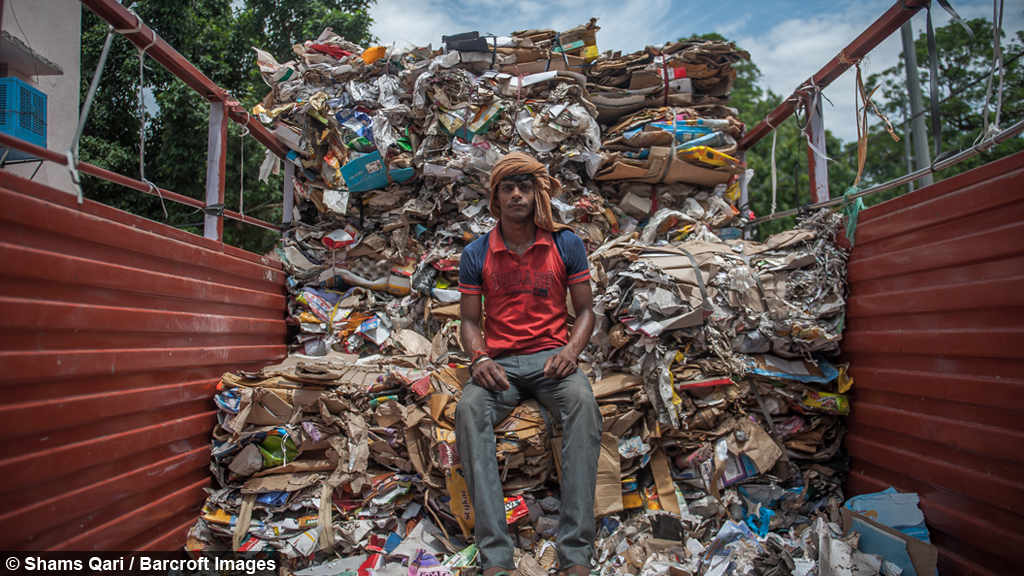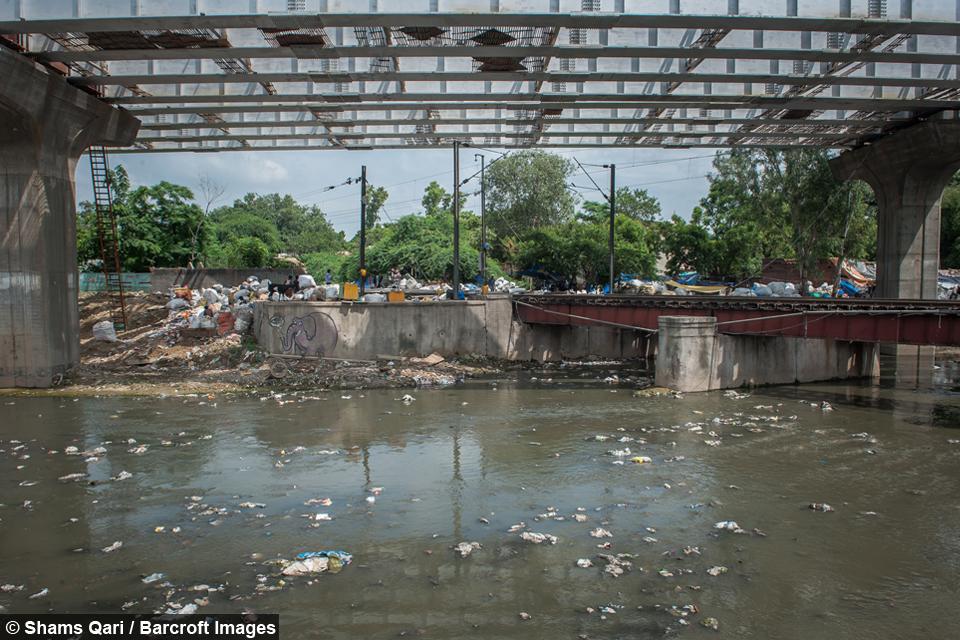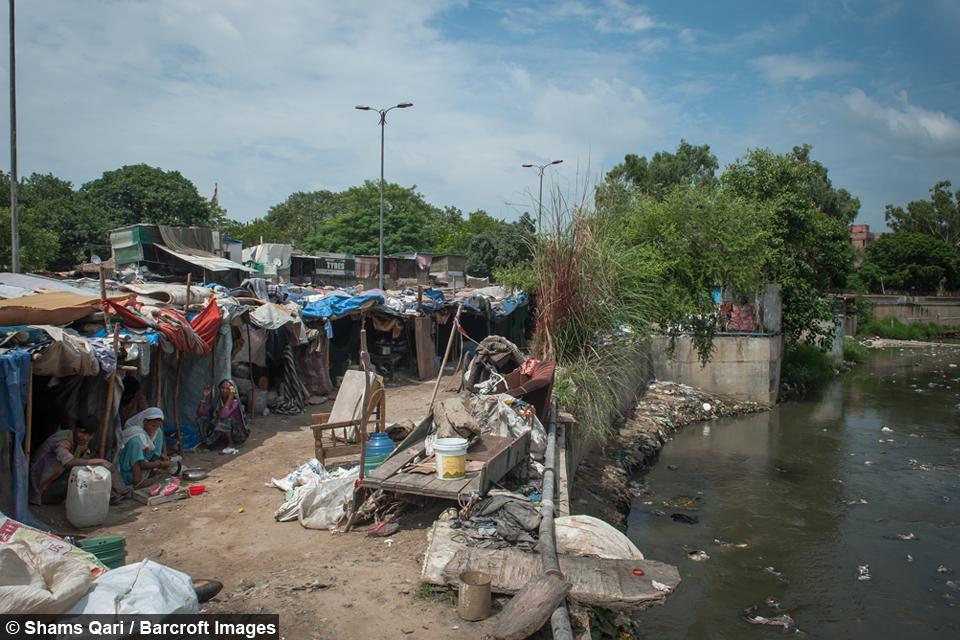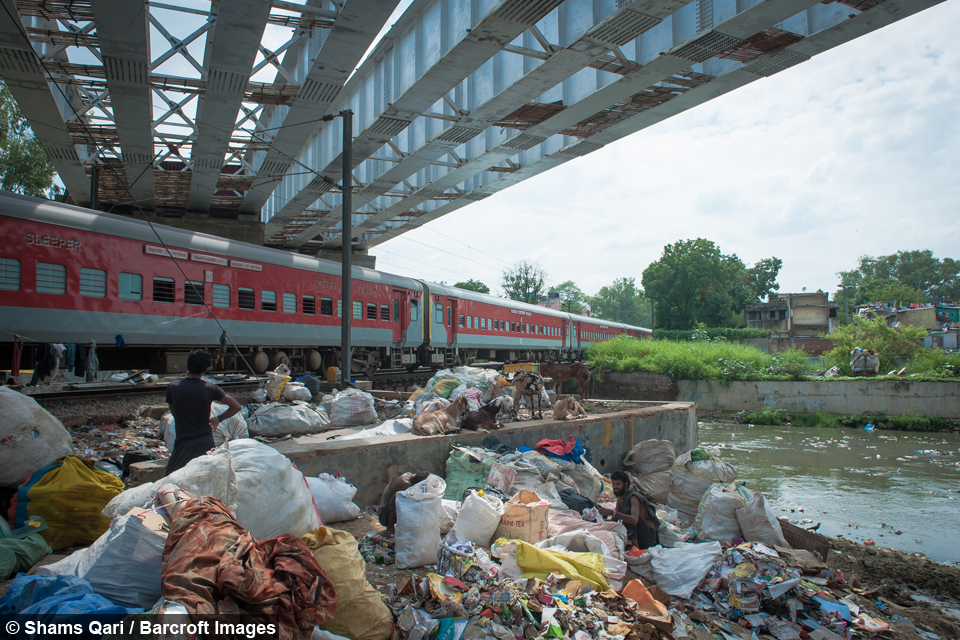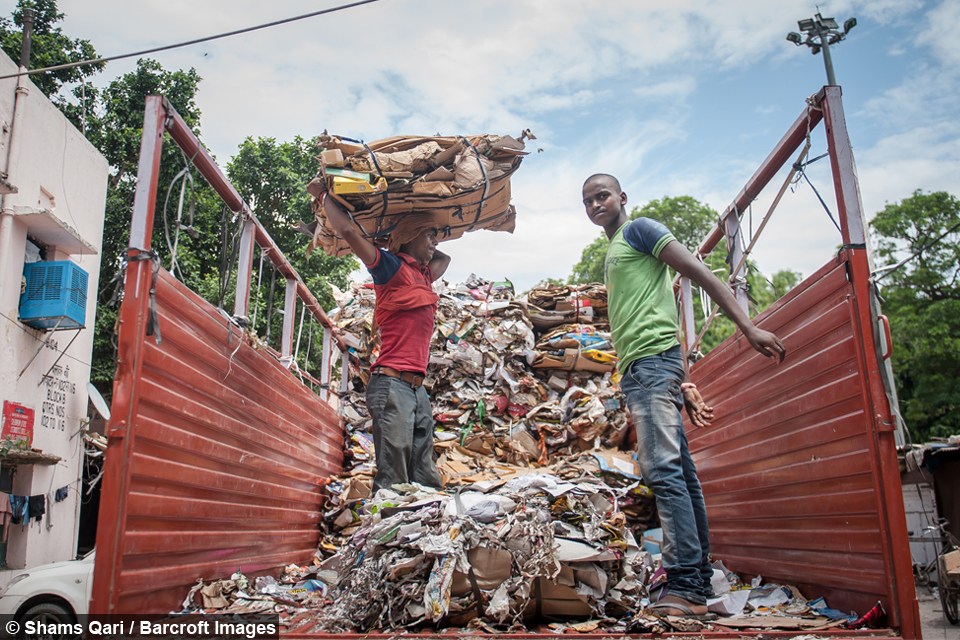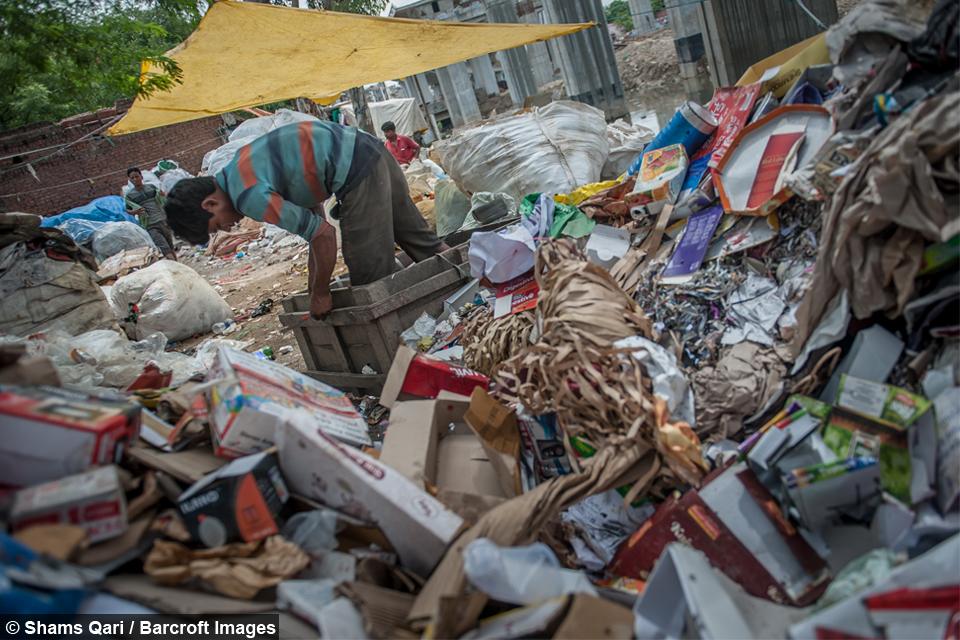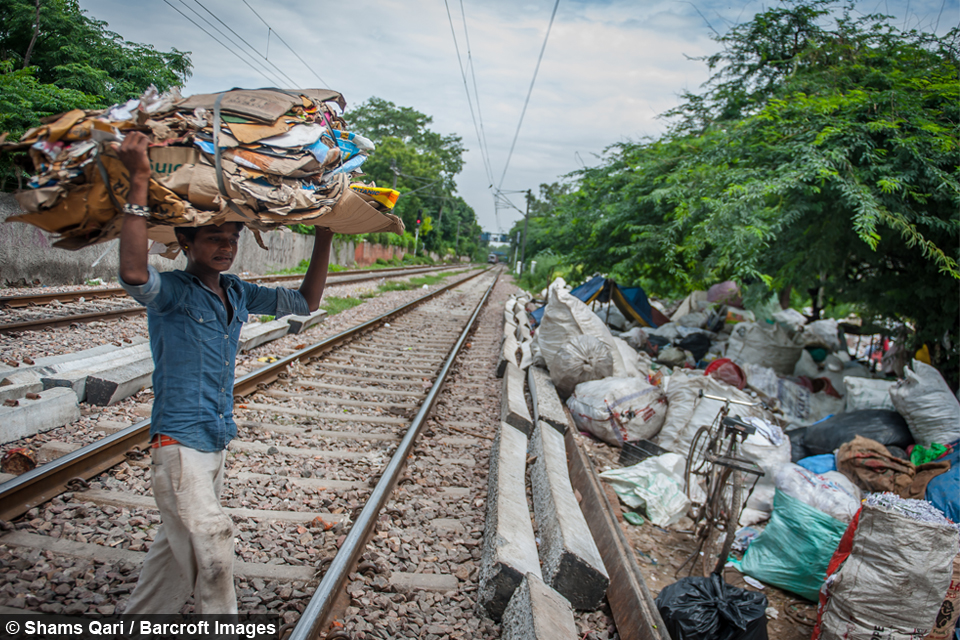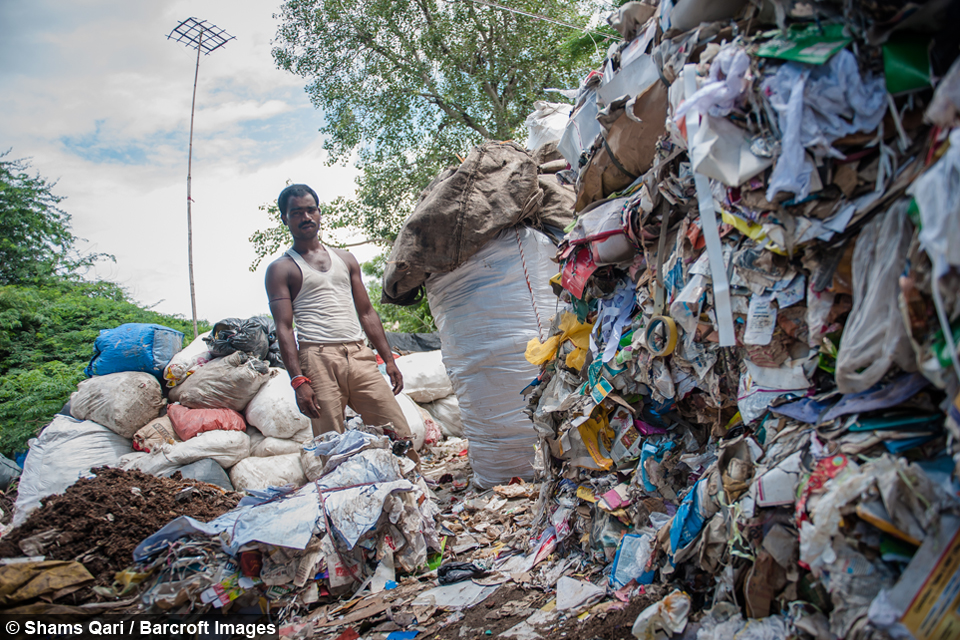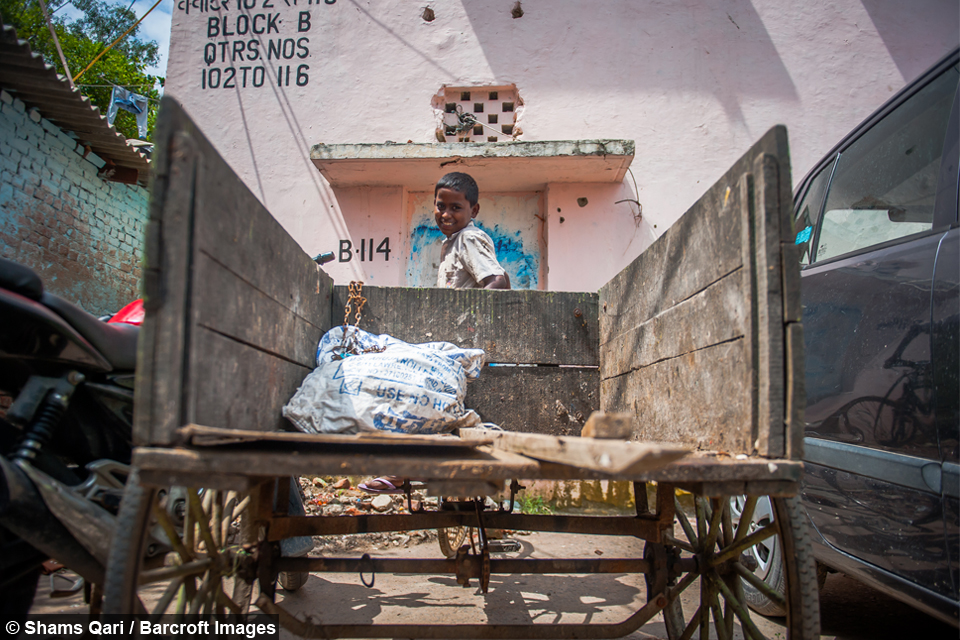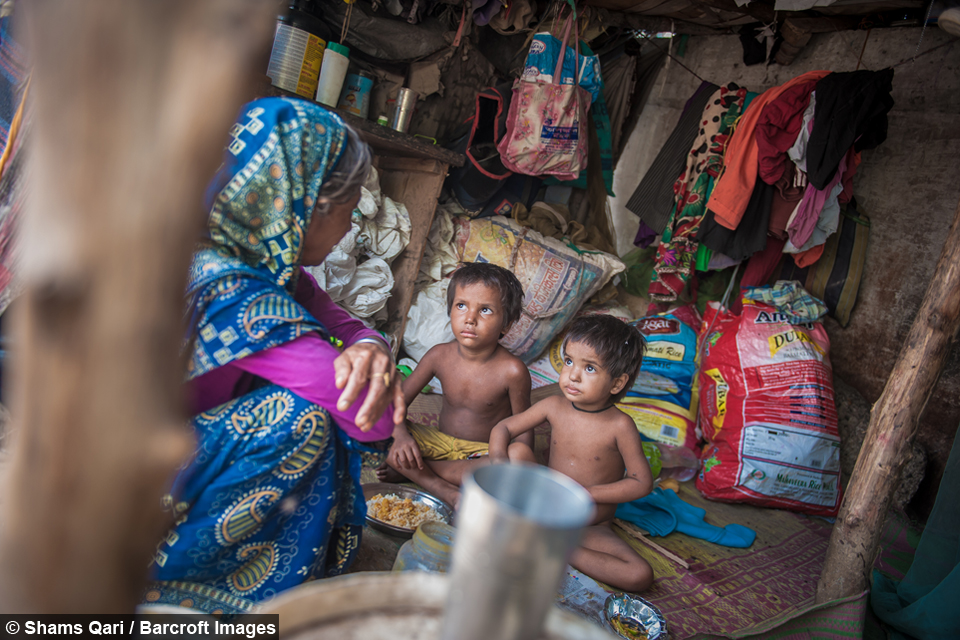Inside Delhi's Garbage Business
By Shams Qari @shamsqari
Scroll down for the full story
With one side of the drain home to number of slum dwellers, the opposite side runs a garbage business which provides a source of income to people living in slums.
Majharul, a resident of the Kushak slums said: “I have been working here for more than 10 years. This is a dirty job but I have not been able to find any other work.
“We sort out the waste with bare hands. This work is not controlled by any government or private sector so no one provides the safety equipment.”
Being one of the major stormwater drains of Delhi, people living on the banks of Kushak open drain claim of foul smell and increasing pollutants in the drain.
The construction of a parking lot and pillars of a bridge on the drain have further choked it to the extent where instead of a continuous flow, the polluted water gets accumulated, thus causing diseases.
Fatima, a woman who lives in Kushak slums said: “I have not seen anyone from the government here. Any outsider that we see here are the people working on the bridge.
“This bridge too is going to create a problem for us but there is no one we can complain to. We are slum dwellers and if we raise our voice, our slums will be bulldozed and we will be left homeless.”
Shakeel Hussain, a resident of the slums added: “My two-year-old child caught diarrhoea last year. Somehow he was saved but some children have also died here over the years due to this pollution.”
“The situation is so worse that our children don’t have an access to clean water. Our earnings are also not enough to by the mineral water bottles from the market.”
Slum dwellers claimed that the drains were not cleaned on a regular basis and were hazards to the community in general.
Imran, a resident who sorts out the garbage, said: “No one comes here to check on this drain. During heavy rains it gets choked because more solid waste lands into it.
“We live here because we work in this garbage business. We earn barely £4 - £5 a day which is not even enough for our food.”
Results of a 2011 census show that in Delhi, 36.6% of households had open drainage systems and 4.2% had no drainage at all.
